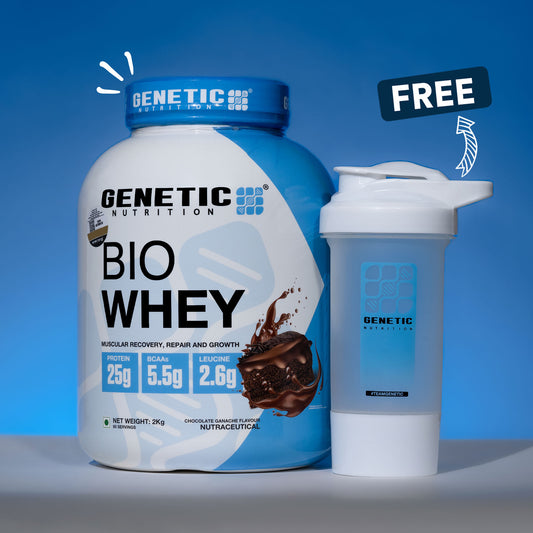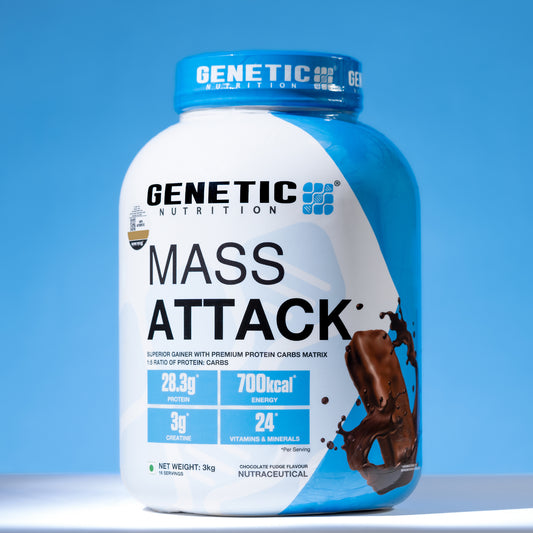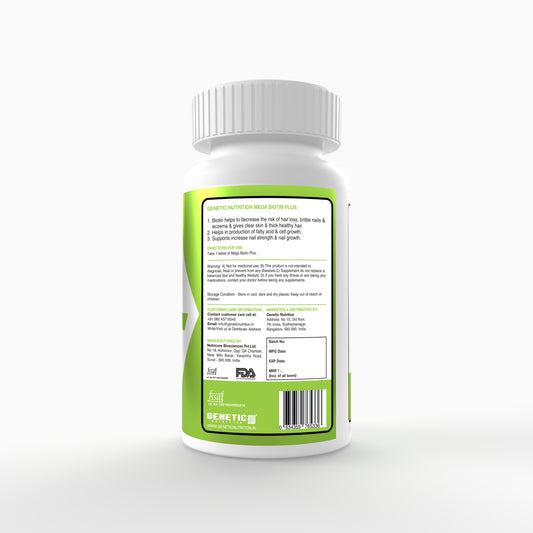Hydrolysed Marine Collagen: Should You Add It To Your Stack?

The most prevalent protein in the human body is collagen. It's found in our tendons, ligaments, skin, muscles, bones, and blood vessels, and it's critical to our general structural integrity.
Unfortunately, our bodies make roughly 1% less collagen per year, and we consume significantly less of it from natural sources than we used to. This isn't a formula for good health, which is why hundreds of food and supplement firms are developing items to help you fill the hole, one of which is marine collagen.
So, what exactly is marine collagen?
Much of the marine collagen sold today is obtained from fish, notably the skin and scales of cod and snapper.
The collagen protein is extracted and then hydrolyzed, which breaks it down into smaller protein units (or collagen peptides) (thus the term "hydrolyzed collagen"). Because of these smaller particles, marine collagen peptides dissolve quickly in hot or cold beverages, making it an easy addition to your daily coffee, smoothie, or porridge. And, indeed, it has no odor or flavor.
The body does not absorb marine collagen whole and deliver it exactly where it needs to go, as it does with all other kinds of collagen. It degrades collagen into individual amino acids, which the body subsequently absorbs and utilizes.
While marine collagen comprises 18 amino acids, it is distinguished by high quantities of glycine, proline, and hydroxyproline. Because marine collagen only includes eight of the nine essential amino acids, it is not considered a complete protein.
What distinguishes marine collagen from bovine collagen?
The main distinctions are based on collagen sources and dietary preferences.
There are at least 28 "types" of collagen in the human body, although three forms—Type I, Type II, and Type III—make up around 90% of all collagen. Types I and II collagen can be found in marine collagen.
Type I collagen, in particular, is present throughout the body (save in cartilage) and is most abundant in bone, ligaments, tendons, skin, hair, nails, and the stomach lining. Type II is predominantly found in cartilage. Types I and III are abundant in grass-fed bovine collagen. Skin, muscle, and blood vessels contain type III collagen. Grass-fed bovine collagen is excellent for overall health due to the mix of Type I and III collagen.
When it comes to diet, it's very self-explanatory: if you don't eat meat but do eat fish, you'll probably choose marine. If you must consume animal products, you will almost certainly choose bovine. Look for sustainable, clean sourcing no matter what you choose.
Consuming collagen has the following health benefits:
1. It promotes skin health
Collagen naturally appears as a kind of framework that maintains our faces appearing lovely and plump. However, collagen production normally reduces as we age, gradually depriving us of these benefits. The good news is that collagen supplementation may aid in this process.
Consuming marine collagen helps maintain dermal thickness in mice by increasing the number and activity of skin fibroblasts, or cells in the dermis that generate collagen and other fibers—and human research appears to confirm this effect.
In one study, women who took a supplement containing hydrolyzed Type I collagen generated from tilapia had better supported skin with less visible wrinkles and photo-aging, as well as improved skin maintenance.
2. Promotes quality sleep
The most abundant amino acid in marine collagen, glycine, has promising sleep-supporting perks. One review of research revealed that ingestion of glycine before bed helped maintain satisfactory levels of self-perceived sleep quality. It also suggested that glycine may help maintain core body temperature, which is associated with better sleep. Erratic spikes and dips in blood sugar can also interfere with quality sleep, while marine collagen (which often contains around 10 grams of protein per serving) can help maintain normal levels.
3. Improves intestinal health
Everything from too much stress to a poor diet can harm the delicate tissues that line the intestines. This adds to "leaky gut," a condition in which foreign particles enter your circulation and wreak havoc on your body, causing inflammation and raising your risk of autoimmune illnesses. The good news is that marine collagen is not only easily digested, but it may also assist in nourishing your stomach due to its amino acid profile.
Glycine and glutamine, two amino acids, may be especially useful since they both maintain the tissue that lines the digestive tract.
Glycine is particularly effective at maintaining inflammation, making it useful for managing inflammatory bowel disease, and glutamine is required for the health of the enterocytes, or epithelial cells, that line your gastrointestinal system.
4. Increases the effectiveness of your training
Collagen is a concentrated supply of the amino acid glycine, which aids in the production of creatine by your body. Creatine, in turn, has been demonstrated to support muscle mass and exercise performance. It's also high in proline, which acts as an antioxidant and aids in the monitoring of cellular damage that may induce post-workout achiness.
5. Improves bone strength
While marine collagen does not include the minerals associated with bone health, one animal study suggests that it may aid in the absorption of calcium, phosphorus, and other minerals.
Absorption was also linked to the activity of osteoblasts, which are bone cells that synthesize and mineralize bone. Osteoblasts are also in charge of secreting collagen, which is used to form the unmineralized component of the bone known as the osteoid.
6. Helps with hair and nail growth
Anecdotal evidence of collagen's capacity to promote hair and nail development abounds. More research is needed, as previous research in this area has typically used bovine or pig collagen.
Are there any unintended consequences?
Like bovine collagen, marine collagen has few serious negative effects.
A few participants have experienced an unpleasant taste in their mouth in some studies, while others have mentioned slight bloating and stomach distress. However, these are not typical outcomes, and collagen is much more likely to aid enhance digestion than to disturb it. However, if you are allergic to fish, you should avoid marine collagen; and if you are already taking any medicine, consult your doctor to ensure collagen will not interfere with its efficiency.
What to look for when picking a marine collagen supplement?
The best source of collagen is grass-fed bovine, which contains both type I and type III collagen, both of which are required for full-body support. If that is not an option, you should be aware of where your marine collagen supplement is sourced.
Because marine collagen is often derived from fish skin or scales, you should think about where the fish comes from, both for your own health and the health of the environment. Ideally, you'll look for a marine collagen supplement from a reputable company that receives its collagen from sustainably harvested fish (if this isn't stated on the box, it's usually a red flag). A variety of marine collagen products have also been certified as non-GMO-Project, which is often another indicator.







